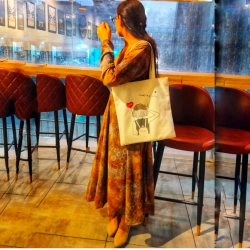

Polycystic Ovarian Disease (PCOD) is a term I had only vaguely heard of until it started affecting someone very close to me—my sister. As a sibling, I never imagined how deeply a hormonal imbalance could impact not just health, but also confidence, emotions, and everyday life. Watching her go through it has taught me more than any textbook ever could.
At first, it started with small things—irregular periods, sudden weight gain, hair fall, acne, and tiredness. She would complain about feeling bloated or having low energy, and we all thought maybe it was just poor sleep or diet. But soon, her symptoms became more frequent and emotionally draining. That’s when a doctor confirmed it was PCOD.
As someone who loves science and studies microbiology, I understood the basic biology behind it—how the ovaries produce more androgens, how insulin resistance can worsen the situation, and how cysts can form. But beyond that, I saw the emotional toll it took on her.
She started avoiding mirrors, refused to join us on outings, and even skipped meals thinking it would help her lose weight faster. The worst part? People around us made casual comments: "She’s just lazy," or "She must be eating a lot of junk." They had no idea what she was going through.
I slowly realized that PCOD is more than just a “women’s issue.” It’s a daily struggle, both physically and mentally. And most importantly, it’s misunderstood. As a sister, I stopped being a silent observer and started helping her in small ways—reminding her to drink water, encouraging her to take short walks, cooking less oily meals, and most importantly, listening without judgment.
I also began reading more about PCOD-friendly diets, lifestyle tips, and natural ways to ease symptoms. I shared everything I learned with her, and we made it a team effort. It’s still a journey, but she’s doing much better now—not just because of medication, but because she doesn’t feel alone anymore.
If you're someone who knows a loved one with PCOD, believe me—your support matters. You don’t have to be a doctor to help. Just being there, understanding their mood swings, helping them stick to healthy routines, and cheering for small wins can mean the world.
From a sister’s lens, PCOD isn’t just a health condition. It’s a battle, and no one should have to fight it alone.
Have you ever met anyone with the same issues ?


